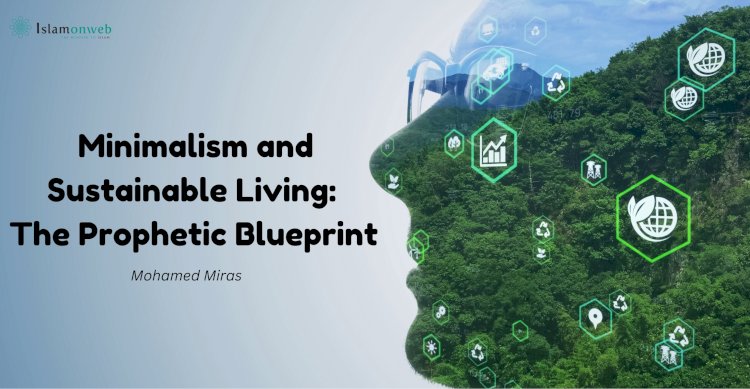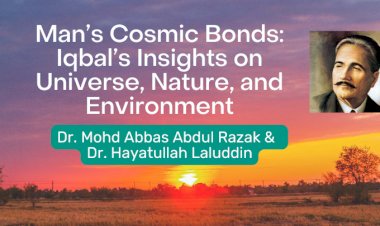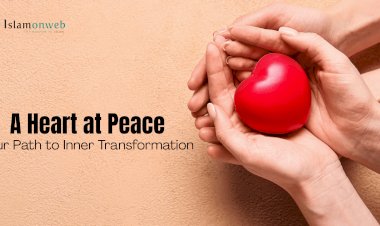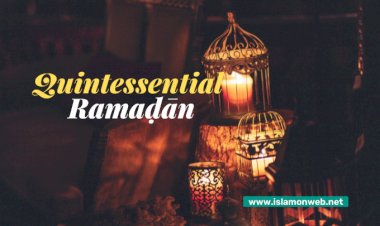Minimalism and Sustainable Living: The Prophetic Blueprint for Modern Life
Minimalism is a philosophical approach that encourages owning fewer possessions and letting go of unnecessary items. In essence, it’s a conscious decision to live with fewer material possessions and to avoid excessive materialism and consumerism. Minimalism is characterised by several key aspects: intentionality, freedom, reduced stress, lower expenditure, and being counter-cultural.
In today’s world, economies thrive on consumerism, where people are often driven to buy more and accumulate possessions. As a result, the amount of waste we produce continues to grow. According to a report from the World Bank, 1.3 billion tonnes of municipal solid waste is generated globally each year, and this figure is expected to rise to 2.2 billion tonnes by 2025[1]. Dan Harris, author of 10% Happier, once remarked, “people are out on a hunt to buy and own things, only to end up trapped and miserable due to materialistic possessions.”[2] Consumerism, rather than fulfilling people’s needs, often creates more anxiety and greed. On the other hand, ‘living with less’ creates space for what truly matters – passions, relationships, health, and mental well-being – and reduces the stress and anxiety caused by clutter[3].
Today, recognising the positive impact of minimalism, many are choosing this lifestyle to achieve peace and balance. In 2015, Netflix premiered Minimalism: A Documentary About the Important Things, which examined the lives of self-declared minimalists from various perspectives. The film explores the minimalist philosophy and explains why its supporters believe it enhances happiness[4].
In Western thought, minimalism has become a recent trend, influencing both design and lifestyle. Over the past decade[5], minimalist practices have regained popularity in Western economies, thanks to platforms like TedTalks, YouTube, and podcasts that promote the benefits of this lifestyle. Religious teachings, too, often encourage minimalism, as many faiths emphasise detachment from worldly possessions and focus on spiritual growth. In Islam, minimalism is promoted through the concept of wasatiyya (moderation), which is a cornerstone of the Prophetic legacy and Islamic way of life. Wasatiyya means being balanced – neither overly minimalistic nor excessive.
The Concept of Minimalism in Islam
Minimalism in Islam aligns with the concept of zuhd, a practice exemplified by the Prophet Muḥammad (peace be upon him), who remains the perfect model of zuhd. Some scholars define zuhd as 'asceticism,' while others prefer the term 'abstinence' to more accurately reflect the practices of the early zuhhād (plural for zāhid). Through zuhd, a person can detach from material possessions and resist the consumerist mindset[6]. As noted earlier, one of the major issues in our contemporary ecological crisis is overconsumption and consumerism. Islam discourages excessiveness and waste. Allah says in the Qur'an:
“O Children of Adam! Dress properly whenever you are at worship. Eat and drink, but do not waste. Surely He does not like the wasteful” (Sūrat al-Aʿrāf, verse 31).
There are several parallels between the modern concept of minimalism and zuhd in the Islamic tradition. Both emphasize simplicity and detachment from unnecessary luxuries and excessive possessions (Shirazi, 2023). Al-Ghazālī viewed excessive consumerism as a cause of moral and spiritual decay in society[7]. To counter the consumerist mentality prevalent in contemporary times, minimalism is seen as a suitable approach that aligns with the principles of zuhd in Islam. He advocated finding happiness in simplicity.
The Prophetic Lifestyle: An Exemplar of Minimalism and Simplicity
The Prophet Muḥammad (peace be upon him) serves as the perfect example of balancing minimalism and moderation. He led a life of simplicity that anyone, whether religious or not, could adopt to reduce attachment to worldly possessions. The Prophet did not own luxurious goods; instead, he would frequently distribute his gifts and charitable contributions among the fuqarāʾ (the poor) of Madīnah. His daily routine was marked by moderation, frugality, the elimination of inessentials, and mindful consumption. The principle of wasatiyya (moderation) is clearly reflected in the Prophet’s lifestyle, particularly in his food habits and use of natural resources.
Despite being a person of influence and leadership, the Prophet’s personal belongings were minimal, and he lived in limited space. His life was simple, humble, and focused on caring for others without indulging in luxuries or unnecessary possessions. His days often passed with only water and dates[8] for sustenance. As a leader, he would eat with the lower sections of society, help them, and share his meals with them. Prophet Muḥammad (peace be upon him) emphasised seeking happiness and inner contentment rather than being fixated on material or worldly pleasures.
This simplicity is precisely what made him an inspiring leader. More than just a leader, the Prophet was an inspirer. Upon his death, he left behind only his white mule, which he used to ride, his weapons, and a piece of land that he gave in charity for needy travellers (Ṣaḥīḥ al-Bukhārī, 4:461). The Qur'an describes the Prophet’s life as a perfect example for humanity to follow, embodying a life of moderation. Several Prophetic sayings (aḥādīth) also encourage incorporating minimalism into our daily lives.
Key Principles of the Prophetic Minimalist Lifestyle
Simplicity in Clothing and Lifestyle
Prophet Muḥammad (peace be upon him) was known for his simplicity in both clothing and lifestyle. He chose a refined yet modest style of dressing, free from pride, arrogance, or extravagance. His clothing was practical, prioritising comfort and ease of movement. The Prophet avoided garments with wide or overly long sleeves and refrained from wearing clothes that extended beyond the ankles, ensuring his dress remained simple and functional[9].
The Prophet (peace be upon him) said, 'Eat and drink, give charity, and wear nice clothes, as long as it does not involve excessiveness or arrogance.'” (Sunan Ibn Mājah)
Reducing Waste and Excess Usage
Prophet Muḥammad (peace be upon him) emphasised the importance of avoiding waste in all aspects of life, including food and water. He taught his followers not to take more than what was necessary. Ibn al-Qayyim, in Zād al-Maʿād, describes the Prophet's eating habits as simple and moderate. The Prophet’s minimalist approach to consumption aligns with his broader message of moderation and mindfulness.
The Messenger of Allah passed by Sa'd when he was performing ablution, and he said: 'What is this extravagance?' He said: 'Can there be any extravagance in ablution?' He said: 'Yes, even if you are on the bank of a flowing river.'" (Ibn Mājah)
Prophetic Emphasis on Environmental Stewardship
In today's world, environmental degradation is largely driven by human activities like urbanisation, industrialisation, and deforestation. The teachings of Prophet Muḥammad (peace be upon him) offer a timeless framework for sustainability and minimalism. The Qur’an reminds us that humans are khalīfas (stewards) of the earth, responsible for its preservation. The Prophet encouraged planting trees even in times of crisis, including during war or even on the Day of Judgment, showing the lasting importance of agriculture for future generations.
He said: “If the Day of Judgment comes upon you while you are planting a seed, continue planting it.” (Musnad Aḥmad)
Prophetic Teachings on Wildlife Conservation
The Prophet also championed animal welfare, a core value in Islam’s teachings on natural preservation. Stories from his life emphasise his compassion for animals and his prohibition of unnecessary harm. These actions highlight the importance of responsibility and mercy towards all living beings.
He forbade the practice of cutting tails and manes of horses, of branding animals at any soft spot, and of keeping horses saddled unnecessarily (Muslim). If the Prophet saw any animal over-burdened or ill-fed he would speak mildly to the owner and say, “Fear Allah in your treatment of animals.” (Abu Dawud)
These teachings resonate with contemporary sustainable development goals, which aim to protect both plant and animal life while promoting sustainable agricultural practices.
Conclusion and Key Findings
The Prophetic approach to minimalism, deeply rooted in moderation (wasatiyya), offers a balanced lifestyle that aligns with the modern movement towards simplicity. The Prophet’s life, which exemplified simplicity, moderation, and minimal consumption, serves as a timeless model for today’s minimalist lifestyle and can guide us towards a more sustainable future.
Based on this study, the key findings are as follows:
- Prophetic minimalism is active minimalism: Unlike modern minimalist approaches that often lean towards extremes, Prophetic minimalism advocates for a balanced, moderate path that avoids excess or luxury while still fulfilling essential needs.
- Simplicity is central to Prophetic life: Simplicity, a key element of minimalism, was integral to the Prophet’s lifestyle. It is a driver of human happiness, as a simple life reduces material desires and fosters peace, wealth, and prosperity.
- Prophetic minimalism encourages sustainable living: By adopting minimalism, we can work towards a more sustainable future. The Prophet’s teachings encourage mindful consumption and environmental stewardship, promoting a modest lifestyle that aligns with sustainable practices.
- Prophetic minimalism permeates all aspects of life: From food consumption to environmental protection, the Prophet (peace be upon him) practiced moderation in all areas of life, demonstrating how minimalism can contribute to sustainability and well-being.
- Interconnection between minimalism and sustainability: Minimalism and sustainability are closely linked, with both promoting positive social and psychological impacts. Together, they can help create a healthier, more balanced society.
In conclusion, Prophetic minimalism is highly relevant to our contemporary lifestyle challenges. It offers a solution for living in peace, simplicity, and harmony, ultimately fostering a happy and sustainable environment for future generations.
Note:
This is a summary of my paper titled "Minimalism, Simplicity, and Sustainability: An Analysis of Prophetic Lessons and Contemporary Practices", which was presented at the 3rd Uswathunnabi International Academic Conference. The event was organised by SSF India in collaboration with the Department of Arabic, Maulana Azad National Urdu University, Hyderabad.
About the author :
Mohamed Miras is a Postgraduate Student at Darul Huda Islamic University, Chemmad, specialising in Islamic Economics and Finance. His research focuses on the intersection of contemporary economics, finance, and Islamic principles. Mohamed has presented his work at several national and international academic events and conferences, primarily focusing on Islamic studies and Islamic finance. His research contributes to the growing dialogue on integrating modern economic practices with Islamic ethical frameworks.
Major References
- Aminu Umer, U., & Khamid, F. (2012). GREEN AND SUSTAINABLE DEVELOPMENT IN AN ISLAMIC PERSPECTIVE. Researchgate.
- Avais, A. (2023, November 24). The Simple Lifestyle of Prophet Muhammad. Medium. Retrieved September 2, 2024, from https://medium.com/@ammar.awais/the-simple- lifestyle-of-prophet-muhammad-b40a973eb060
- Defriono, I., Kholiq Zaini, S., Ahmad, Fadlun Nawal, A., & Moulidin Hidayath, A. (2023). Zuhd and Minimalism in a Consumerist Society : Exploring Al-Ghazali and Fumio Sasaki’s Thoughts. PERADABAN JOURNAL OF RELIGION AND SOCIETY, 2(2), 151– 163.
- Hasan, N. H. (2022). Islam and Ecological Sustainability: An Exploration into Prophet’s Perspective on Environment. Social Science Journal for Advanced Research, 2(6), 15–21. https://doi.org/10.54741/ssjar.2.6.4
- Madias, K. (2023). MINIMALISM AND SUSTAINABLE LIVING [Online]. In
Sustainability: E-book for the Students (pp. 350–355). Bogucki Wydawnictwo Naukowe
- Mohamed Omer, S., & Jalal Khan Chowdury, A. (n.d.). Islamic Ethics of Waste Management towards Sustainable Environmental Health. International Islamic University Malaysia
- Qaudhari, H. (2021). A Comparative Study Of Minimalist Lifestyle And The Islamic Practice Of Simple Living. Cifia Global Journal, 2
- Qureshi, N. (2024, April 4). Reclaiming Zuhd: Embracing Minimalism in a Wasteful World. Muslim Climate Watch
- Yulianti, N. H. (2021). THE CONCEPT AND APPLICATION OF THE MINIMALIST LIFESTYLE ON QURAN PERSPECTIVE. Taqaddumi Journal of Quran and Hadith Studies, 1(2), 33–45. https://doi.org/10.12928/taqaddumi.v1i2.4559
Citations:
[1] The World Bank (2019), Solid Waste Management. Accessed 3th September 2024 at http://www.worldbank.org/en/topic/urbandevelopment/brief/solid-waste-management
[2] Singh, J., & Singh, Dr., Rao. (2021). Minimalism: a step towards peaceful living. ASIAN JOURNAL OF SCIENCE AND TECHNOLOGY, 12(1).
[3] Living with less. (2020, November). Materiliease Interiors. Retrieved September 4, 2024, from https://www.materialiseinteriors.com/posts/living-with-less
[4] Rose, R. (2024, January 23). A Christian’s perspective on minimalism. Redeeming Productivity. https://redeemingproductivity.com/minimalism/
[5] Madias, K. (2023). MINIMALISM AND SUSTAINABLE LIVING [Online]. In Sustainability: E-book for the Students (pp. 350–355). Bogucki Wydawnictwo Naukowe
[6] Qureshi, N. (2024, April 4). Reclaiming Zuhd: Embracing Minimalism in a Wasteful World. Muslim Climate Watch.
[7] Defriono, I., Kholiq Zaini, S., Ahmad, Fadlun Nawal, A., & Moulidin Hidayath, A. (2023). Zuhd and Minimalism in a Consumerist Society : Exploring Al-Ghazali and Fumio Sasaki’s Thoughts. PERADABAN JOURNAL OF RELIGION AND SOCIETY, 2(2), 151–163
[8] Elshinawy, M. (2022, February 24). His Simplicity: The Prophet’s ﷺ Character [Video]. Yaqeen Institute.
[9] The Clothes of the Prophet Muhammad. (2024, June 22). Who Muhammad Is Team. Retrieved September 6, 2024, from https://www.whomuhammadis.com/life/clothes-of-the-prophet-muhammad/
Disclaimer
The views expressed in this article are the author’s own and do not necessarily mirror Islamonweb’s editorial stance.
























Leave A Comment